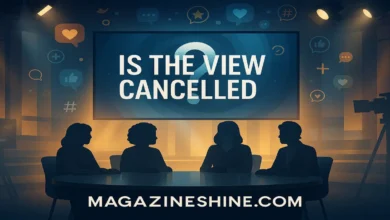Olympus Scanlation: A Complete Guide for Manga Enthusiasts

Discover the world of Olympus Scanlation, its impact on manga culture, translation process, fan community, challenges, and future. Expert insights, FAQs, and everything you need to know.
Introduction to Olympus Scanlation
When people hear the term Olympus Scanlation for the first time, it often sparks curiosity. The word itself might sound mysterious, almost like something out of an ancient myth, yet in reality it refers to a community-driven effort to make manga and webcomics accessible to global readers. Olympus Scanlation is not just about scanning and translating words. It represents passion, dedication, and a bridge between cultures.
Fans who encounter series through Olympus Scanlation often describe it as an eye-opening experience. Imagine finding a story that was never published in your language, only to stumble upon a carefully translated version online. That sudden access changes everything. Olympus Scanlation doesn’t just give fans entertainment—it provides them a connection to the creators’ worlds, stories, and emotions.
The Rise of Scanlation Culture
To understand Olympus Scanlation, we first need to look at the broader world of scanlation. The practice itself has been around for decades, long before digital platforms became mainstream. Fans, dissatisfied with slow or limited official releases, decided to take matters into their own hands. They scanned manga pages, translated them, and shared them with fellow enthusiasts.
Olympus Scanlation entered this world with its own vision. Unlike quick machine translations or poorly edited text, Olympus Scanlation has always prioritized quality. They didn’t want readers to just glance at rough translations—they wanted people to feel the tone, humor, and emotions exactly as intended. This dedication helped Olympus Scanlation earn recognition as one of the groups readers could trust.
Olympus Scanlation and Manga Accessibility
Accessibility is the heart of Olympus Scanlation. For many fans, manga titles never get licensed outside Japan, Korea, or China. That means entire genres, hidden gems, and cult classics remain locked behind a language barrier. Olympus Scanlation removes those walls by bringing stories directly to global fans.
Think about it—without Olympus Scanlation, readers might never discover a series that later becomes their all-time favorite. Many beloved titles gained their international fanbases thanks to groups like Olympus Scanlation who took the risk of translating them first. Even now, some publishers watch scanlation communities to see what fans are enjoying before deciding whether to license a series.
Behind the Scenes of Olympus Scanlation
People often underestimate the amount of work that goes into Olympus Scanlation. It isn’t as simple as scanning and typing text. The process starts with raw scans, which must be cleaned to remove artifacts, text bubbles, and any visual noise. After that, translators carefully re-create the dialogue in English or another language, paying attention to cultural context and nuances.
Then come the editors, proofreaders, and quality checkers. They ensure the text fits smoothly into the page, the grammar is correct, and the emotional weight of every line stays intact. In short, Olympus Scanlation works like a professional publishing team—except they do it for free, powered by passion and community spirit.
Challenges Faced by Olympus Scanlation
Of course, Olympus Scanlation is not without challenges. One of the biggest issues is legality. Technically, scanlation operates in a gray area, since it involves translating and distributing content without official licensing. While Olympus Scanlation prioritizes fan access, publishers may view it as competition.
Another challenge is maintaining consistency and accuracy. Manga often includes cultural references, idioms, and subtle humor that don’t translate directly. Olympus Scanlation must find creative ways to preserve meaning without losing the spirit of the story. On top of that, the team must manage deadlines, community expectations, and sometimes even criticism from readers who want faster releases.
The Community Around Olympus Scanlation
One of the most beautiful aspects of Olympus Scanlation is the community. Readers don’t just consume the work passively—they interact, share feedback, and even join discussions about character development or plot theories. Online forums and social media groups dedicated to Olympus Scanlation feel like small fandom families.
These communities often fuel creative fan projects, from fanart to memes and even cosplay inspired by manga discovered through Olympus Scanlation. In this way, Olympus Scanlation becomes more than just a translation group. It becomes the spark that ignites passion, creativity, and friendships across the globe.
Olympus Scanlation vs Official Translations
Many people wonder why someone would choose Olympus Scanlation over official translations. The answer lies in differences of style, tone, and availability. Olympus Scanlation is often faster, delivering chapters soon after release. Readers don’t have to wait months—or even years—for a title to reach their region.
Beyond speed, Olympus Scanlation sometimes provides a more authentic experience. Official translations can be overly sanitized or adjusted for market preferences, while Olympus Scanlation tends to preserve cultural quirks. That said, Olympus Scanlation never claims to replace official work. Instead, it complements it, giving fans access while also helping them decide which series to support when official versions become available.
Ethical Debates Around Olympus Scanlation
The existence of Olympus Scanlation naturally sparks debate. Supporters argue that without groups like this, many series would remain inaccessible forever. They see Olympus Scanlation as champions of cultural exchange. Critics, however, highlight how scanlation might impact sales and discourage publishers from licensing certain titles.
The truth likely lies in the middle. Olympus Scanlation undeniably introduces readers to new works, many of which later gain official recognition. At the same time, the group is aware of the delicate balance between sharing stories and respecting creators. Most readers who discover manga through Olympus Scanlation eventually go on to support official versions when they are released.
The Future of Olympus Scanlation
So where does Olympus Scanlation go from here? As digital manga platforms continue to expand, scanlation groups face pressure from both publishers and fans. Some predict that scanlation might fade away, while others believe it will adapt and evolve with technology.
Olympus Scanlation has already shown resilience by maintaining quality and community trust over the years. With readers still demanding accessibility and authenticity, it’s likely Olympus Scanlation will continue to play a role, even if the landscape changes. The spirit of sharing and passion is not something that disappears overnight.
Olympus Scanlation in Pop Culture
It’s fascinating to see how Olympus Scanlation has influenced pop culture. Fans often create memes from their translated panels, quote lines in forums, or build fanart around characters they would never have discovered without the group’s work. This ripple effect spreads into cosplay communities, online debates, and even recommendations among friends.
In many ways, Olympus Scanlation is not just a behind-the-scenes team—it has become part of the cultural footprint of modern fandom. By shaping how people discover and discuss manga, Olympus Scanlation indirectly shapes how stories spread across the internet.
Expert Insights on Olympus Scanlation
“Olympus Scanlation has always been about more than words. It’s about connection—bridging cultures, stories, and people.” — Quote from a longtime community member.
To put things into perspective, here’s a simple table comparing Olympus Scanlation and official releases:
| Aspect | Olympus Scanlation | Official Release |
|---|---|---|
| Speed | Fast, often same week | Slow, months or years |
| Tone | Authentic, fan-driven | Market-adjusted |
| Access | Free, global reach | Region-limited |
| Community | Highly interactive | Limited engagement |
This comparison highlights why Olympus Scanlation continues to thrive. It delivers not just translations, but an experience.
Frequently Asked Questions about Olympus Scanlation
What is Olympus Scanlation?
Olympus Scanlation is a fan-driven group dedicated to scanning, translating, and editing manga for readers outside its original language.
Is Olympus Scanlation legal?
Not entirely. It operates in a gray area since it distributes content without official licenses, but many fans see it as a way to promote series globally.
Why do people prefer Olympus Scanlation?
Readers appreciate the speed, authenticity, and community involvement. It often feels more personal than official translations.
Does Olympus Scanlation affect manga sales?
While some worry it reduces sales, many fans actually use Olympus Scanlation to discover titles and then buy official releases later.
How accurate are Olympus Scanlation translations?
The team prioritizes accuracy and cultural context, often producing translations that feel more authentic than some official versions.
Can anyone join Olympus Scanlation?
Yes, many scanlation groups recruit volunteers for translation, editing, or quality checking. Olympus Scanlation thrives on community participation.
What genres does Olympus Scanlation focus on?
They cover a wide range—from romance to action and fantasy. The main goal is to share underrepresented or untranslated works.
How do readers access Olympus Scanlation?
Primarily through fan forums, scanlation websites, or social media platforms where chapters are shared.
Is Olympus Scanlation still active?
Yes, though like any group, its activity depends on volunteer contributions and community interest.
Will Olympus Scanlation disappear in the future?
Unlikely. Even with digital platforms rising, fans still value the authenticity and speed that groups like Olympus Scanlation provide.
Conclusion
Olympus Scanlation represents more than fan translation. It’s a cultural bridge, a community effort, and a passion project that continues to impact manga fandom worldwide. While debates about legality and ethics remain, there is no denying the role Olympus Scanlation has played in shaping how global audiences experience manga.
At its core, Olympus Scanlation is about access, passion, and connection—values that resonate far beyond the pages of a comic.





